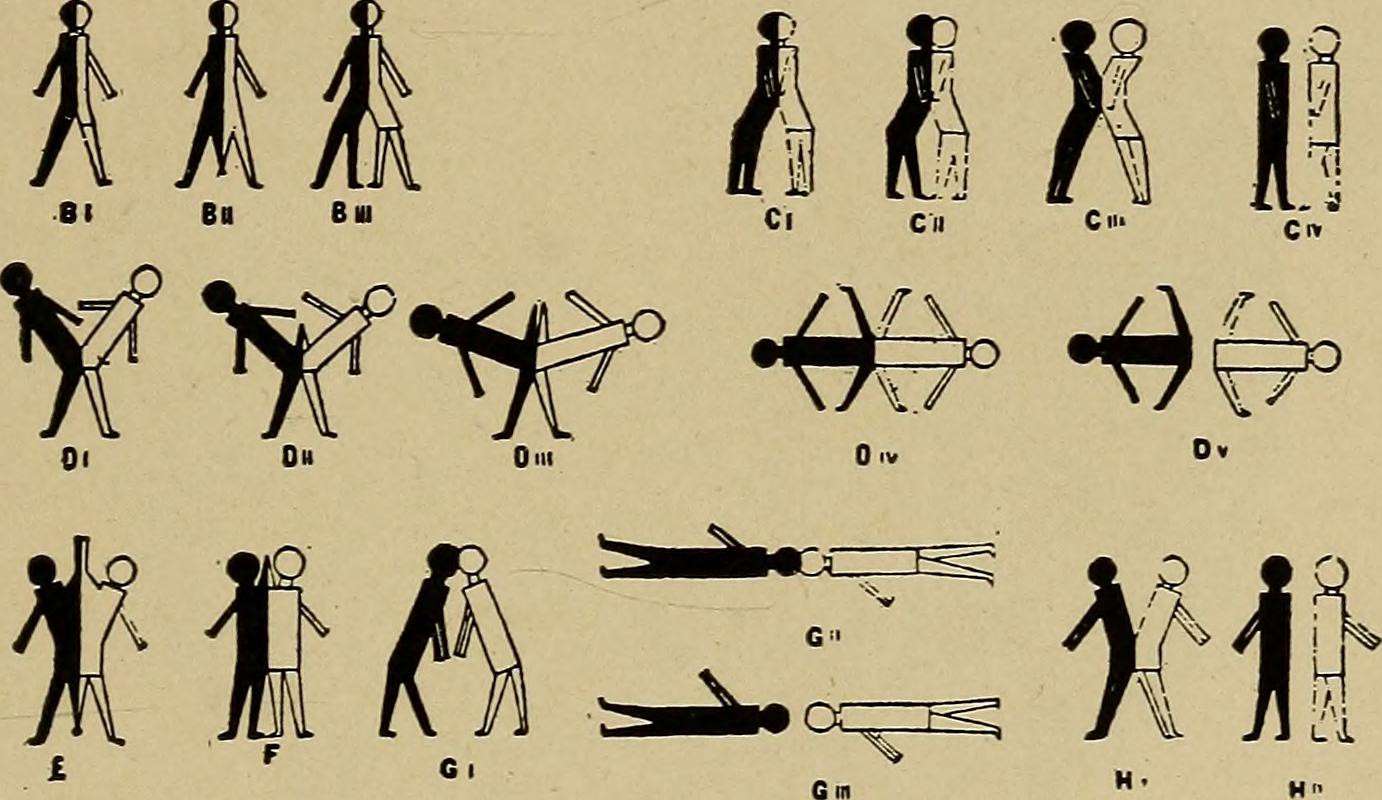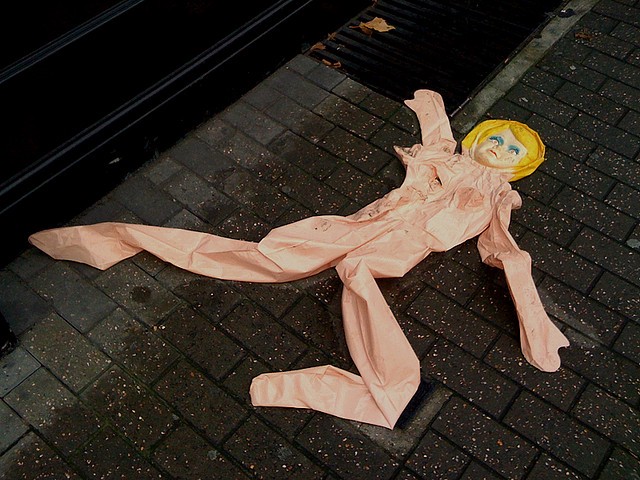Craft
Have We Gotten Better at Writing About Sex?
This year’s Bad Sex in Fiction Award winner isn’t as cringeworthy as previous years

Auberon Waugh of the Literary Review founded the Bad Sex in Fiction Award in 1993, out of a need to note the superfluous and unnecessary writing about sex in literature and to encourage an evolution away from the idea that “sex sells.” Now entering its 25th year, with the nominees out last week and the winner announced yesterday, the award is still necessary. Yet this year, even the judges agreed that the nominees were really not all that bad. Could it be that writers have started to get better at writing about sex?
This explanation makes sense to me because the first year of the Bad Sex Award, 1993, was also my first year of life. I still have a ways to go in reaching my peak maturity as a writer and as an overall citizen (i.e, credit card bills and life-style choices), but I’ve also come a very long way, especially in terms of sexual maturity (hi Mom). Maybe it just takes 25 years of tasteful public shaming for a person—or sex writing—to mature.
This year, even the judges agreed that the nominees were really not all that bad. Could it be that writers have started to get better at writing about sex?
If we want to continue to ride my timeline and align it with the existence of this award, then it would be appropriate to note that 2006 was a banner year for famous nominees—and, for me, the beginning of puberty. What’s worse than the sixth grade, filled with braces and weird pains and awkward, awkward, awkwardness? Well, have you read Pynchon’s excerpt that put him in the 2006 nomination? The one where we find a dog that has been trained to give his owner oral pleasure and is left with a curious character? It’s worse. Or at least just as bad.
I don’t even want to reproduce the original text on the page. If you want to read the full excerpt, click here. Otherwise, just know the passage ends with “Reader, she bit him.”

This is really bad. I’m talking “choking on the lunch your mom packed for you in the middle of the cafeteria and having to give yourself the Heimlich maneuver in the sixth grade while eating next to your crush” bad. The kind of stuff that makes you embarrassed that you even read and visualized it bad. But this didn’t even win the award! Iain Hollingshead won the award for his “bulging trousers” entry. The editors of the Literary Review magazine wrote this in their defense, “Because Hollingshead is a first-time writer, we wished to discourage him from further attempts. Heavyweights like Thomas Pynchon and Will Self are beyond help at this point.” (Pynchon and Self weren’t even the only hard-hitters on the list that year; David Mitchell was also nominated for Black Swan Green. Puberty is hard on us all.)
But have we matured in our ways of reading and accepting sex in writing? Last year, Erri De Luca won the 24th annual award for the following:
My prick was a plank stuck to her stomach. With a swerve of her hips, she turned me over and I was on top of her. She opened her legs, pulled up her dress and, holding my hips over her, pushed my prick against her opening. I was her plaything, which she moved around. Our sexes were ready, poised in expectation, barely touching each other: ballet dancers hovering en pointe.
The bad sex is starting to be not that bad, per se. There’s no discussion of any kind of the cringe-worthy metaphors to sex you hear from that guy in your MFA. It’s actually kind of funny, to imagine two people overwhelmed by sexual desire yet poised like ballet dancers, maybe even in tutus. The prize seems to have finally gone to someone that wrote a funny-bad passage on sex and not a simply bad passage on sex like Morissey’s boob erotica (sorry, love the Smiths but this intimacy is nothing like the kind of whimsical connection we feel during “This Charming Man”), or Sean Thomas’ “own Toshiba, dinky little JVC.”
This year, the sex writing is pretty mild in terms of the outrageous. Eliminating sex from literature would be ignoring the importance of talking about sex in western culture, and these authors are trying to keep the conversation going. But when we put Melvyn Bragg’s florid sex from A Time to Dance (1993 winner) next to Giles Coren’s I-don’t-even-know-what in Winkler (2005 winner), and compare them both to Laurent Binet’s passage that was nominated this year, you can see how the writing has matured from “fuck it, this needs a sex scene” to “let me at least try and relate this back to ‘The Seventh Function of Language.’”
The writing has matured from “fuck it, this needs a sex scene” to “let me at least try and relate this back to ‘The Seventh Function of Language.’”
Here’s Bragg from the contest’s infancy:
We came together, do you remember, always tenderly, at first standing, like a chivalric introduction to what was to be a voluptuous sensual battle? Just stood and kissed like children, simply, body to body, skin to skin, you slightly stirring against me, myself disregarding for those seconds the ram of sex aching below.
Eyes closed . . .reaching into the melting fluid rubbered silk — a relief map of mysteries — . . . reeking of you, our tongues imitating the fingers . . .
Coren from 2005, puberty:
And he came hard in her mouth and his dick jumped around and rattled on her teeth and he blacked out and she took his dick out of her mouth and lifted herself from his face and whipped the pillow away and he gasped and glugged at the air, and he came again so hard that his dick wrenched out of her hand and a shot of it hit him straight in the eye and stung like nothing he’d ever had in there, and he yelled with the pain, but the yell could have been anything, and as she grabbed at his dick, which was leaping around like a shower dropped in an empty bath, she scratched his back deeply with the nails of both hands and he shot three more times, in thick stripes on her chest. Like Zorro.
Puberty, all right.
And Binet, a 2017 nominee:
He puts his hands on Bianca’s shoulders and slips off her low-cut top. Suddenly inspired, he whispers into her ear, as if to himself: “I desire the landscape that is enveloped in this woman, a landscape I do not know but that I can feel, and until I have unfolded that landscape, I will not be happy …”
Bianca shivers with pleasure. Simon whispers to her with an authority that he has never felt before: “Let’s construct an assemblage.”
Even this year’s winner is comparatively decent, if slightly perplexing in its metaphors—congratulations, Christopher Bollen.
The skin along her arms and shoulders are different shades of tan like water stains in a bathtub . . . Her face and vagina are competing for my attention, so I glance down at the billiard rack of my penis and testicles.
The Literary Review’s justification for Bollen’s win doesn’t even pretend he’s as bad as the offenders of yesteryear. “Bollen goes overboard in his attempts to describe the familiar in new terms, leading occasionally to confusion,” the judges decided. “In the line quoted … they were left unsure as to how many testicles the character in question has.”
Shedding Skin: Sex, Intimacy, Writing, and Social Media
Side by side, the errors of the writers’ ways seem to be fixing themselves. No more do we see “crude” sex happening on the page as an experiment. Instead, the “bad” comes from the uninspiring metaphor of a woman to a bathtub and testicles to a billiard rack. As readers, we are not stuck to a word or a phrase that makes our reading face pucker and squint, like “melting fluid rubber silk” did for me. Nor are we engrossed by the pacing and the horror of being marked “like Zorro.” Rather, this year’s nominations and winner invite us to laugh at the awkward. We can chuckle at the different ways we understand sex, how every experience can vary, and we can look at this award as a sort of pact that with every year we will be one step closer towards better prose in sex.










